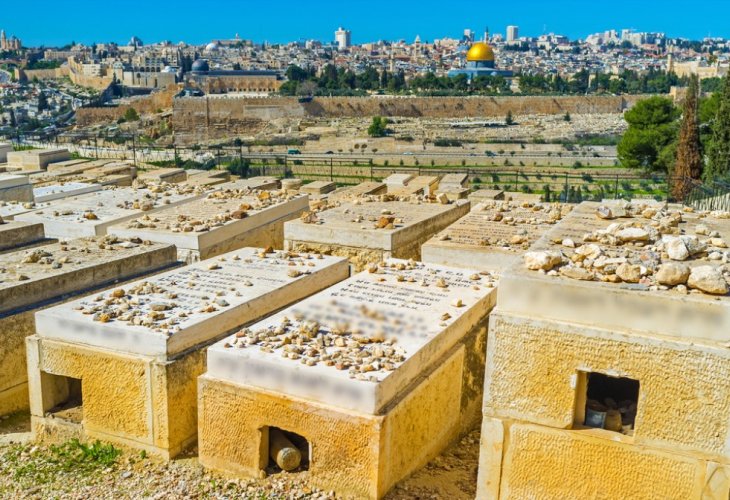Facts in Judaism
Sacred Ground: Ten Things You May Not Know About Jewish Burial
A Guide to the Laws, Customs, and Spiritual Significance of Jewish Burial Practices
 (Illustration photo: shutterstock)
(Illustration photo: shutterstock)1. Burying the dead is a mitzvah (commandment). In fact, this commandment is so significant that it appears in the Torah as both a positive and a negative commandment. It is rooted in the concept of kavod ha-met (honoring the dead), which underpins the detailed laws regarding burial.
2. Throughout history, Jews have made it a priority to bury their dead in a kever Yisrael (Jewish grave), meaning in a Jewish cemetery exclusively. In many cases, a lot of effort was invested to retrieve the bodies of Jews who died under difficult circumstances so they could receive a proper burial. Every Jewish community has a group known as chevra kadisha (sacred society), responsible for preparing the body and ensuring that all burial practices are conducted according to Jewish law, with full respect for the deceased.
3. The halachic (Jewish legal) obligation to bury in the ground is derived from a verse in Deuteronomy (21:23): “You shall surely bury him on that day,” referring to one who was executed by a court and left hanging. Even such a person must be buried promptly to maintain his dignity. Rashi explains that it is disgraceful to the King (Hashem) for a human being, made in His image, to be dishonored. If this applies to a criminal, it certainly applies to any other individual.
4. Additional biblical sources reinforce the principle of burying bodies in the ground, even non-Jews. For instance, the Book of Joshua describes how the king of Ai was hanged and later buried under a pile of stones at sunset.
5. According to Pirkei DeRabbi Eliezer (chapter 21), Adam learned how to bury the dead from a raven. When Cain killed Abel, Adam and Eve did not know what to do with the body. A raven buried its dead companion in front of them, prompting Adam to do the same for Abel. In Genesis, Abraham purchased a burial plot—the Me’arat HaMachpelah (Cave of Machpelah)—to bury Sarah. Moses was buried by God Himself, as described in Deuteronomy (34:6): “And He buried him in the valley.”
6. Kavod ha-met includes several specific laws, one of which is the prohibition against delaying burial unnecessarily. As long as a body remains unburied, it is considered dishonorable. When permission was granted to bury the dead from the Bar Kokhba revolt at Beitar, the Sages instituted the blessing HaTov VeHaMeitiv (“Who is good and does good”) in Birkat HaMazon (Grace after Meals), to thank God for the restoration of the dignity of the fallen.
7. Traditionally, the body is placed directly into the earth, wrapped in tachrichim (simple shrouds), without a coffin. However, in countries where the law requires coffins, it is permitted to bury the body in a wooden coffin, often with holes drilled into the bottom to maintain contact with the earth.
8. The importance of burial is also evident in the Torah's warnings of punishment. One of the curses in Deuteronomy (28:26) describes a person whose body remains unburied, left as food for animals. The Talmud considers grave desecration to be a severe punishment. Rabbi Bar Shmuel taught that such desecration may occur as a result of the sins of the living.
9. Being buried in the Land of Israel is regarded as a great merit. In Genesis, Jacob asks Joseph not to bury him in Egypt. Similarly, Joseph requested that his bones be brought to Israel. Moses personally ensured Joseph’s remains were transported out of Egypt for burial in the Promised Land.
10. In earlier generations, elderly Jews would move to the Land of Israel in their final years to die and be buried there. Today, with international travel, many Jews living abroad still request burial in Israel. When burial in Israel is not possible, some communities place three small bags of soil from the Land of Israel on the body after purification, so the deceased will symbolically rise upon resurrection in connection with the holy land.

